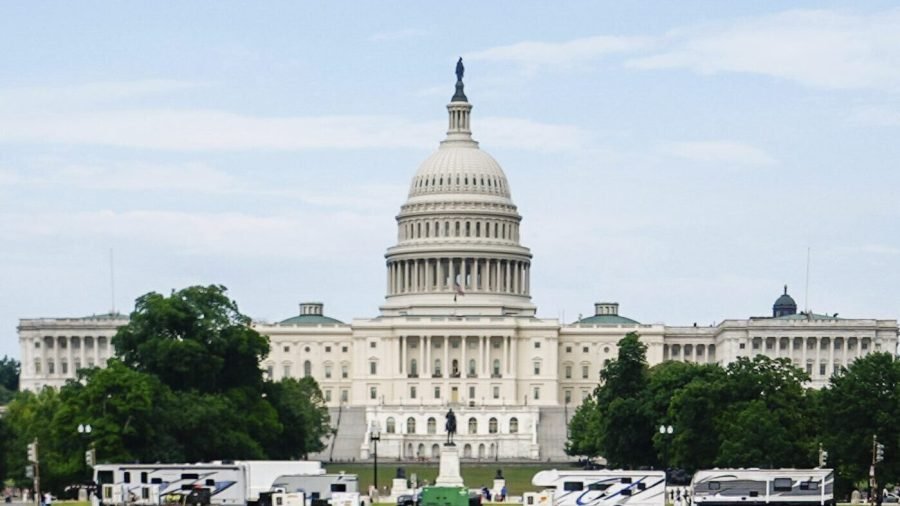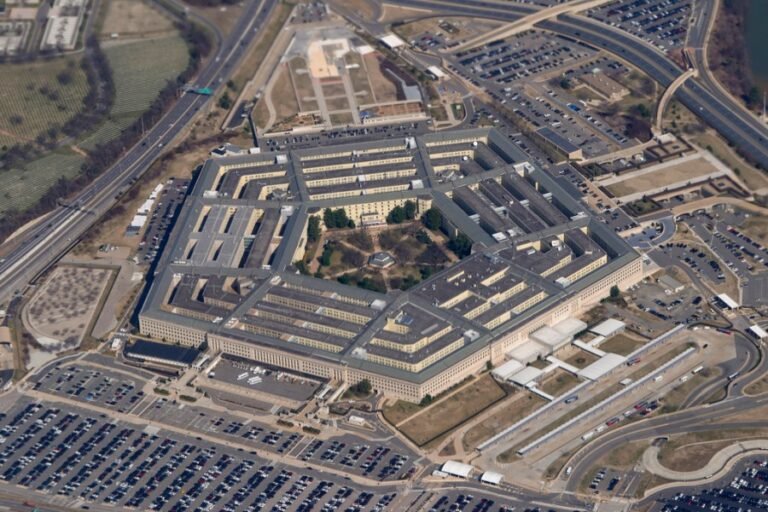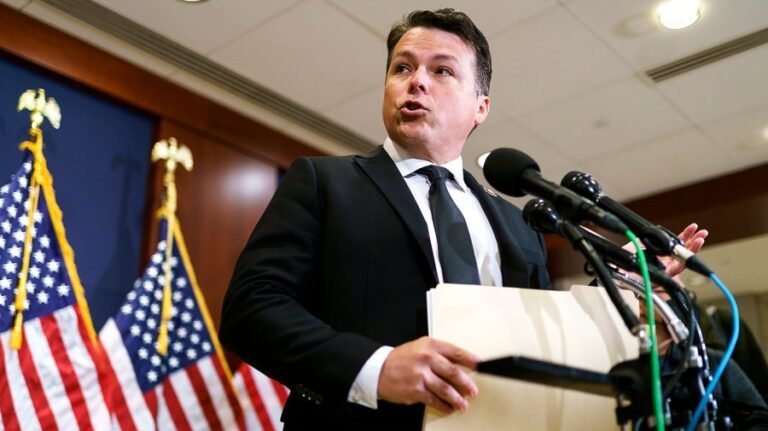
Senate Republicans on Tuesday jammed through a major package advancing President Trump’s tax priorities, paid for by a host of cuts to the social safety net, including Medicaid and food assistance. The bill also slashes green energy and includes changes to student loan programs.
The nearly 1,000-page package, released Friday, has undergone notable changes since initial pieces of the plan first came into view weeks ago. Republicans have also sought to make several tweaks to the bill in the past several days.
The expansive bill now awaits consideration in the House, where leaders hope to push it across the finish line before a self-imposed July 4 deadline.
Here are some of the most significant changes that made the cut through a frenzied 27-hour debate — and what didn’t.
What made it in?
Tax cuts
A centerpiece of the legislation is making permanent the expiring provisions in Trump’s signature tax law — which nonpartisan scorers and think tanks estimate would cost trillions of dollars over the next decade.
One of the most costly proposals is extending the individual rate reductions in the 2017 law. The bill would also seek to cement existing federal tax brackets, boost the standard deduction and maintain the termination of personal exemptions.
It also seeks to deliver on several key promises the president made on the campaign trail last year. That includes deductions for taxes on tips, overtime pay and car loan interest. However, the measures are not fully deductible.
Medicaid
The final version of the legislation includes restrictions on Medicaid, the joint state-federal program that provides health care for more than 70 million low-income and disabled Americans.
Like the House-passed version, the Senate bill will require beneficiaries to prove they are working or in school at least 80 hours a month to keep their health insurance starting Dec. 31, 2026. The Senate version extends the work requirement to low-income parents of children older than 14, in addition to childless adults without disabilities. It also requires more frequent eligibility checks.
But the Senate parliamentarian said a measure cutting federal funds to states that use their own money to provide health care coverage to immigrants lacking permanent legal status, along with a provision banning Medicaid from covering gender transition services, weren’t in compliance with Senate rules.
The steep cuts to taxes levied by Medicaid expansion states on hospitals and other providers remained in the bill despite objections by some Republicans in the Senate and House, though they will now be delayed by a year, to start in 2028.
The bill also requires people above the poverty line to pay out-of-pocket copays for most Medicaid services, like lab tests or doctor visits. States will be allowed to charge up to 5 percent of a person’s income per year, though some Democratic-led states may opt for a smaller amount.
Cuts to green energy subsidies
The Senate made sweeping cuts to climate-friendly energy tax credits — especially for wind and solar — that were passed as part of the 2022 Inflation Reduction Act.
The final legislation does not allow a project to get the tax credit if it does not begin producing electricity by 2028. This is stricter than an earlier Senate version, which would have allowed projects that begin construction in the next few years to qualify for the credits.
SNAP
The bill would require some states for the first time to cover a share of the cost of Supplemental Nutrition Assistance Program (SNAP) benefits — which are currently completely funded by the federal government — if they have a payment error rate above 6 percent.
If the error rate is 6 percent or higher, states would be subject to a sliding scale that could see their share of allotments rise to a range of between 5 percent and 15 percent. The proposal in the megabill would also allow states with rates below that level to continue paying zero percent.
Republicans say the proposal is aimed at incentivizing states to get their payment error rates down, while Democrats have argued the measure could lead to states having to cut benefits.
However, last-minute changes have been made to the plan that would allow for delayed implementation for states with the highest payment error rates after concerns from Republican senators in Alaska, which had the highest rate in fiscal 2024.
Student loans
The final bill would introduce numerous changes to student loans, including limits on borrowing and consolidation into only two repayment plans.
Republicans want to cap graduate-level federal student loans at $20,500 a year, at $50,000 for law or medical school government loans, and at$20,000 for Parent PLUS loans for undergraduate students.
If passed, student loan borrowers will have two repayment options: a new standard plan and a new income-driven repayment plan. Under the latter, starting in 2028, borrowers will have access to the Repayment Assistance Plan and the income-based repayment option.
It would also eliminate economic hardship and unemployment deferments. The bill does allow loans to be rehabilitated twice, up from once before.
Pell Grants
Pell Grants would get additional funding in 2026 and exclude students who received full-ride scholarships to a school.
It also establishes workforce Pell Grants offering help to students who enroll in short-term work programs that don’t end with a college degree.
Debt limit
The bill would add $5 trillion the nation’s debt limit, which caps how much money the Treasury Department can owe to pay the country’s bills.
Congress last acted on the debt limit in 2023 as part of a deal that suspended the ceiling through 2024. Since January, the Treasury Department has been implementing “extraordinary measures” to buy time for lawmakers to raise or suspend the debt limit and stave off the threat of a national default.
The national debt stands at more than $36 trillion.
School choice tax credit
Republicans passed a tax credit refund that would go to individuals or companies that donate to organizations that provide K-12 school choice scholarships.
The provision is a major win for the school choice movement, as it will create a national program to bypass Democratic states that have been resistant to school choice initiatives.
What got left out?
Public land sales
Sen. Mike Lee (R-Utah) had been pushing for a provision that would have required the sale of hundreds of thousands of acres of public land, but he abandoned that effort over the weekend.
In a post on social platform X, he said, “Because of the strict constraints of the budget reconciliation process, I was unable to secure clear, enforceable safeguards to guarantee that these lands would be sold only to American families — not to China, not to Blackrock and not to any foreign interests.”
“For that reason, I’ve decided to withdraw the federal land sales provision from the bill,” he added.
Lee had originally proposed to sell up to 3.3 million acres of land owned by the Bureau of Land Management (BLM) and Forest Service, but he later revised his proposal to pertain to up to 1.2 million acres of the BLM land.
He said he was pushing the measure to build more affordable housing. He received opposition from not only Democrats but also members of his own party, some of whom said they would vote against the bill if it contained public land sales.
Excise tax on wind and solar
The legislation omits a contentious change that floated over the weekend — an excise tax on new solar and wind projects if they contain Chinese components.
This surprise provision met pushback from moderate lawmakers who did not want to add an additional tax on these industries.
State AI provisions
The Senate stripped a provision barring states from regulating artificial intelligence (AI).
The most recent version of the provision would have barred states from regulating AI for five years if they wanted access to $500 million in AI infrastructure and deployment funding. It cut in half the timeline of the original provision, which sought to bar state AI regulation for 10 years.
Tobias Burns and Julia Shapero contributed.

